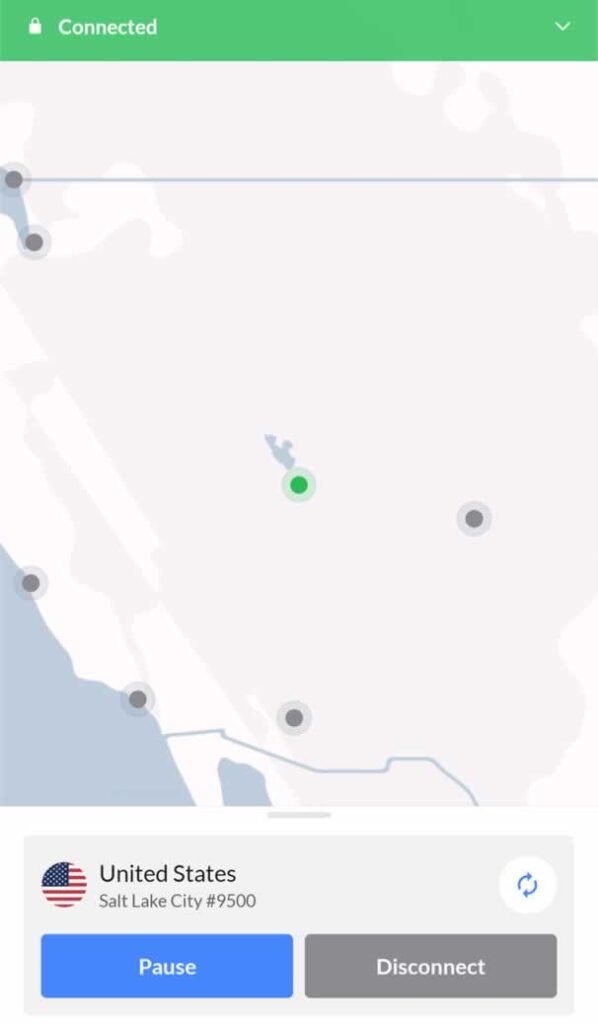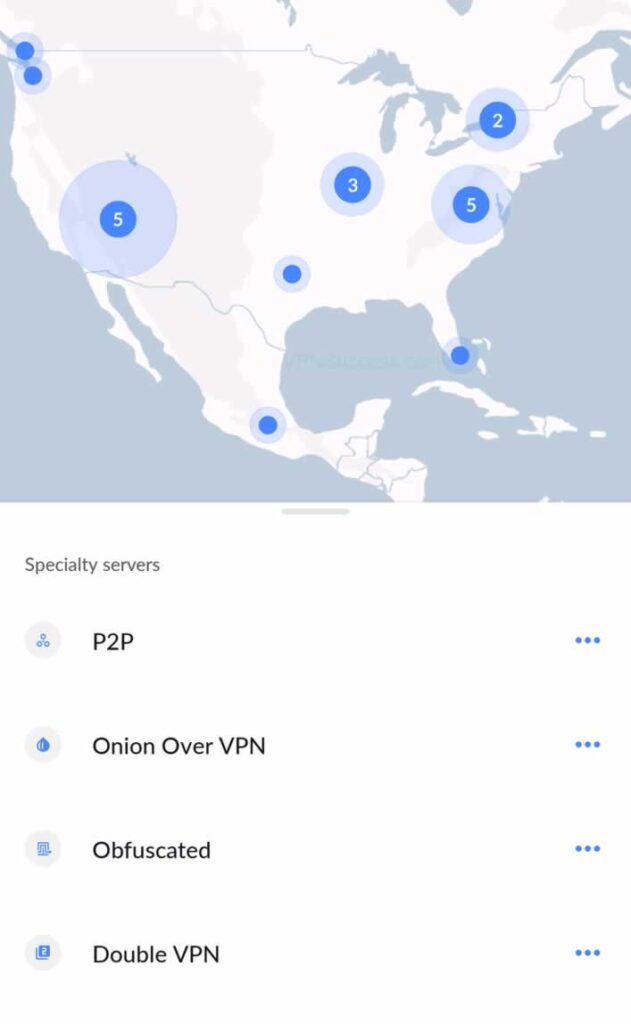Nowadays, many people, especially those in business, need Wi-Fi for online buying and selling. Having Wi-Fi installed at your premises is likely to attract customers knowing that they can simultaneously browse and receive services. However, there are various safety concerns about the use of public Wi-Fi among many internet users.
So, is it safe to use hotel wifi? Hotel wifi systems often lack stringent security, making them vulnerable to attacks. Users are advised to employ a VPN to encrypt their data and safeguard against unauthorized access or cyber threats. Frequent risks include man-in-the-middle attacks, malware distribution, and eavesdropping. For optimal protection, guests should verify the network with hotel staff, avoid accessing sensitive information, and use updated antivirus software.
By using a VPN on hotel Wi-Fi, your internet connection becomes encrypted, which means that the data you send and receive is protected from potential eavesdroppers, including hackers and other malicious actors. The VPN also hides your IP address, making it more difficult for websites and third parties to track your online activities.
While using a VPN considerably improves your security and privacy on hotel Wi-Fi, it is still crucial to choose a reputable VPN service provider. Opt for a well-known, trustworthy VPN service with a proven track record of security and privacy to ensure your data remains protected.
It is safe to use a hotel Wi-Fi with a VPN as the VPN will encrypt all the data sent across the hotel Wi-Fi, ensuring no one can snoop on the data travelling across the VPN connection. Hotels which don’t have secure Wi-Fi where anyone can use it, are prime candidates for using a VPN, as there could be people using the Wi-Fi to spy or hack other users.
Having a reliable VPN will enable you to surf the web safely. Presumably, some hotel Wi-Fi networks are secure, but others rely on you to login in using vital personal credentials. The only way to be sure is to be cautious when using any public network, not just from the hotels.
The hotel Wi-Fi is the most effective medium for hackers to access personal data. Business people always travel in these hotels; therefore, infiltrating their vital information gives hackers leeway for cybercrime.
Using VPN has proven to be secure, and there are different types of VPN providers worldwide. We help you clear your doubts in matters of VPN use, especially for public Wi-Fi. This article will discuss whether you can use a VPN on hotel Wi-Fi and connect it to your device whenever you have any difficulties.
Can You Use VPN on Hotel Wi-Fi?
Using a VPN on hotel Wi-Fi is highly recommended. In fact, it is highly recommended to use a VPN when connecting to public Wi-Fi networks, such as those found in hotels, cafes, and airports. Public Wi-Fi networks are often unsecured and can expose your data to various security risks, including eavesdropping, man-in-the-middle attacks, and hacking.
Using a VPN on a Hotel Wi-Fi is highly recommended as a VPN encrypts internet traffic, securing online activities from potential eavesdroppers on the same network, which is particularly useful in hotels where network security may be lax. This precaution helps protect sensitive information such as passwords and credit card numbers.
When I am working from a hotel room, I always use a VPN as I’m concerned my data may be at risk ensuring that my information is not vulnerable to cyber tactics. My VPN locks out internet snoopers and even the hotel from accessing my data.

There are various open networks available in public places such as the airport, cafés, coffee shops, public parks, and shopping malls; these networks are accessible by many people at a go.
Whenever you log onto the internet, you put your data at risk of unauthorized access and loss. Therefore, you need to practice extra caution, especially with sensitive data such as bank details.
Always ensure that whenever you visit a hotel and use their internet, your VPN must be on to encrypt and protect all your data. Even if the hotel claims that the network is secure, it is in your best interest to be cautious; this may be a business strategy for more customers. The only way to ascertain your security is by deploying the use VPN for more security.
Perhaps you earlier used hotel Wi-Fi without VPN, and you are concerned that your data may have leaked out; there’s no cause for alarm. You can easily change your passwords, making them strong enough to hinder unauthorized access.
In the future, it would help to use a VPN for added security. Using it encrypts your data; therefore, even if hackers gain access to your information, they will be coded so that non can infiltrate your systems.
Can’t Connect VPN on Hotel Wi-Fi?
Using a VPN will simplify the user interface, and it helps that it requires little input to enable and run. Most hotels need their clients to watch movies that are in-house. Hence, they disable the IP security to enable you to stream from your device. In a nutshell, some hotels make it quite complicated to use VPN to connect to their Wi-Fi. However, there are procedures to bypass such restrictions.
When I use NordVPN on the Hotel Wi-Fi, I use the default NordLynx protocol built around the WireGuard VPN protocol. But if this does not connect, when the UDP port used by this protocol could be blocked by the Hotel’s firewall, I can use OpenVPN or IKEv2/IPSec protocols.
If all these protocols fail, I use NordVPN’s obfuscated servers as these use a process that disguises VPN traffic as regular HTTPS traffic. This obfuscation technique helps me bypass network restrictions. In countries with heavy internet restrictions or during network limitations imposed by certain networks or ISPs obfuscated servers allows me to avoid deep packet inspection (DPI) and maintains access to VPN services.

If you’re having trouble connecting to a VPN on hotel Wi-Fi, there could be several reasons for the issue. Hotels may have restrictions or firewalls in place that block VPN connections to control network usage or comply with local regulations. Here are some steps you can try to resolve the issue:
Change VPN protocols: VPN providers often support multiple protocols, such as OpenVPN, IKEv2, L2TP/IPsec, or WireGuard. Try switching to a different protocol in your VPN app’s settings, as some protocols may work better with restrictive networks.
Use a different VPN server: Sometimes, specific VPN server IP addresses can be blocked. Try connecting to a different server or choosing a server in another region.
Change the VPN port: Firewalls may block common VPN ports. Check your VPN app settings or contact your VPN provider’s customer support for information on how to change the port you’re connecting through.
Use a VPN with stealth mode or some form of obfuscation: Many VPNs offer stealth mode and obfuscation features, which helping bypass VPN blocking by disguising your VPN traffic as regular HTTPS traffic. Look for this feature in your VPN app or consider switching to a VPN service that offers it.
Try connecting through a mobile hotspot: If you have a smartphone with a mobile data plan, you can try creating a mobile hotspot and connecting your device to the internet through your phone. This may bypass the hotel’s network restrictions, allowing you to connect to your VPN.
Contact your VPN provider’s customer support: If you’re still unable to connect, contact your VPN provider for assistance. They may have specific instructions or solutions for connecting to their service on restricted networks.
Keep in mind that not all VPNs can bypass restrictive networks, and some hotels may have sophisticated systems in place to block VPN usage. Always ensure you’re using a reputable and reliable VPN service with a proven ability to bypass network restrictions.
In case your device can’t connect to a hotel Wi-Fi or has issues connecting your laptop, we are here to help you maneuver the restrictions. You may find it challenging to connect to a hotel Wi-Fi because their firewall restricts your VPN from connecting to the hotel networks.
Similarly, it may be due to subnets overlapping when you assign it a private IP address using your VPN. Thus, when you connect to the hotel Wi-Fi using the new IP address, the connection disables due to matching local addresses.
Another possible reason for the difficulty connecting VPN to hotel Wi-Fi could be a proxy server blocking the client-server. A proxy server interacts with the internet and the client to perform a NAT decoding. It causes the packets to appear to be emanating from the proxy server and not the client-server.
When the client and the proxy server interact, tunnel establishment may generally fail if the VPN required a particular IP address. Remember that a simple or outdated proxy server may not support certain VPN types; hence, you may need to replace your VPN to support the particular proxy server.
Therefore, to make your VPN connection to the hotel Wi-Fi, you can hide your VPN traffic from being recognized by the hotel’s network. All you need to do is enable an open VPN on port 443. It is encrypted web traffic that may not be easy to block. If the network blocks the option, then you have to find another alternative to bypass the network.
Next, check your device configuration, which may also be why you can’t connect to the hotel Wi-Fi. You can solve it by troubleshooting the device to obtain a better connection. Suppose you still have trouble with the hotel firewall restricting you from accessing the network.
In this case, you can use your IP security settings, which allow you to obtain remote access behind the network’s firewall. If you still find it difficult operating the settings, then you can consult an IT expert.
Stealth VPN can also disguise your traffic, making it difficult for the firewall to detect since most VPN protocols contain data packet headers, which are more like fingerprints and are easily noticeable by network firewalls.
Stealth technology will enable your VPN to rewrite the fingerprints or block the network from reading your traffic, making it difficult to recognize your traffic. You can also use a DNS jumper tool, which enables you to move between servers, making it easier for your device to troubleshoot.
The tool will also assist in unblocking necessary servers, blocking the unnecessary ones, and improving your security. Moreover, DNS jumper will improve your server speed, making your work easier and faster.
Risks of Using Unsecured Wi-Fi
A significant threat when using public Wi-Fi is hacking. The hacker blocks you from directly using the hotspot, and all the information you convey passes via them. In such a situation, the hacker has access to all your information that goes through the internet.
Such information may include emails, information on your credit cards, and other valuable credentials. With your details at hand, hackers can operate your systems and disguise them to look like you did it yourself.
Hackers can also install malware into your device, which can cripple it. Through the malware, they can monitor your traffic, access your data, and possibly manipulate such information for their personal use. Cybercriminals can also masquerade as a legitimate hotel Wi-Fi, and once you connect to it, they intercept your information before it reaches the server.
To avoid the hassle of trying to understand which network is legitimate, all you need to do to ensure that your device is safe from men in the middle, malicious hotspots, snoopers and sniffers, and malware issues. You can always encrypt your device using a good VPN, and your information will be safe no matter what kind of office network you connect to your laptop.
Using unsecured Wi-Fi networks, such as public Wi-Fi in hotels, cafes, and airports, exposes you to various security risks. These networks typically do not require a password to connect, making them more vulnerable to attacks and data breaches. Here are some of the risks associated with using unsecured Wi-Fi:
- Eavesdropping: Unsecured Wi-Fi networks make it easier for hackers and other malicious actors to intercept and monitor your internet traffic, potentially gaining access to sensitive information such as login credentials, emails, and personal data.
- Man-in-the-middle attacks: On unsecured Wi-Fi, attackers can intercept the communication between your device and the websites you visit, allowing them to steal sensitive information, inject malicious content, or even impersonate legitimate websites.
- Rogue hotspots: Cybercriminals can set up fake Wi-Fi networks with names similar to legitimate hotspots, tricking users into connecting to them. Once connected, the attacker can monitor your online activities and potentially gain access to your personal information.
- Malware distribution: Unsecured Wi-Fi networks can be used to spread malware, such as viruses, ransomware, and spyware, which can infect your device and compromise your data.
- Sniffing and packet analysis: Hackers can use special tools to capture and analyze your data packets on unsecured networks, potentially gaining access to sensitive information.
To protect yourself while using unsecured Wi-Fi, consider the following precautions:
- Use a VPN: A virtual private network (VPN) encrypts your internet connection and hides your IP address, making it difficult for attackers to intercept your data or track your online activities.
- Enable HTTPS: Whenever possible, use HTTPS-secured websites, which encrypt data exchanged between your device and the website.
- Keep software updated: Regularly update your operating system, antivirus software, and other applications to protect against known security vulnerabilities.
- Turn off file sharing: Disable file sharing on your device to prevent unauthorized access to your files.
- Be cautious with sensitive information: Avoid entering sensitive information, such as login credentials or financial data, when connected to unsecured Wi-Fi networks.
By following these tips and being cautious about your online activities, you can reduce the risks associated with using unsecured Wi-Fi networks.
Finally
Using a VPN to encrypt your traffic when using hotel Wi-Fi is safe. It also protects your information and data from cybercriminals and network providers. Not protecting your device when browsing using public Wi-Fi is risky, even if the hotel claims to guard their network from hijackers.
You are still at high risk of losing your credentials and essential data. Moreover, if you have problems connecting to the hotel Wi-Fi, it could be because of a setting issue or your VPN needs updating. To solve it, you can deploy the tips we have suggested or consult an IT technician; this way, you will have a VPN that enables whenever you connect to a Wi-Fi network.

